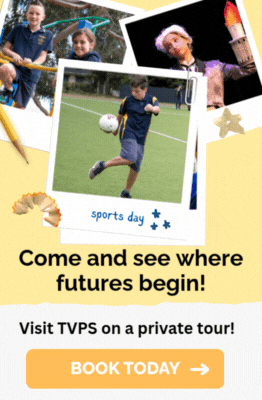Curriculum
Educating the Whole Child
At Templestowe Valley Primary School, educating the whole child means focusing on the bigger picture. We recognise our responsibility to support the health and happiness of every student, not just their academic results.
We are a warm and inclusive community where every child is valued, respected and supported. Our approach is grounded in evidence-based teaching practices, including systematic phonics instruction and the use of decodable texts to build strong foundations in reading.
We promote a culture that gives students time to explore their interests and develop the wider skills they need to thrive in a safe, engaging and supportive environment, while still being academically challenged and promote a growth mindset.
TVPS offers a well-rounded curriculum with a range of subjects including the arts (Visual and Performing), sciences, physical education and languages (Mandarin). We promote independence and student-led decision making through differentiation and teaching to each child’s point of need.
Our success is not only reflected in assessment data, but in the smiles and joy we see on our students’ faces when a concept is grasped and their confidence begins to grow.
 Student Wellbeing ⊕
Student Wellbeing ⊕
Student well-being is at the heart of everything we do. Children are supported in many ways in order for them to feel safe and connected to their peers and the wider school community.
Programs to support students’ well-being include:
- Flying Start (Kinder Transition)
- You Can Do It! Program
- Junior School Council (JSC)
- MAGIC Groups (whole school Multi-age well-being program)
- Restorative Practices and Zones of Regulation
- School Leaders Program
- Big Friends Little Friends (Year 6/Prep)
- The Reliance Project (Partner School)
- Respectful Relationships
- Lunch time clubs and friendship groups
- Buddy Benches
We know that education is most successful when schools and families work together in partnership. We welcome parents and families to help in classrooms, in our gardens, on excursions and at sporting events.
 Literacy ⊕
Literacy ⊕
At TVPS we recognise that reading is the most fundamental skill that students need to learn. Reading is an essential skill for participation in all areas of life. Our core aim is for our students to become confident and independent readers who gain not only understanding, but also real pleasure from the reading activities and texts they engage with.
Reading, listening to and talking about stories and non-fiction texts develops students’ vocabulary, because they meet words they would rarely hear or use in everyday speech. Understanding vocabulary is vital for comprehension and also for wider learning and progress across the entire curriculum.
We have a non-negotiable curriculum of ten hours of Literacy (Reading & Viewing, Writing and Speaking & Listening) where students actively take part in the daily Literacy block.
What does a reading session at Templestowe Valley look like?
At TVPS every student takes part in the daily reading component of the Literacy block. During these sessions, the teacher introduces the lesson with a specific focus, identifying the learning intention and success criteria.
Students are taught specific reading strategies and skills. To develop reading fluency and accuracy, we explicitly teach synthetic phonics with a systematic approach. Once students have mastered the 44 phonemes in the English language, the focus changes to the teaching and exploration of morphemic and etymological knowledge. Comprehension and vocabulary skills are further developed utilising the CAFÉ Reading strategies.
During the introduction to each session, the whole class is explicitly taught the content by the teacher using a range of resources. One of the main resources utilised in P–2 classrooms is the Little Learners Love Literacy Program, which is a synthetic phonics program. Students are exposed in a systematic way to all the sounds and supported with decodable readers.
The main body of the lesson involves students applying the content taught by the teacher in pairs, independently or in teacher-led small groups. Once students have read the text with their teacher, they are given the decodable text (P–2) to take home and re-read to consolidate their learning.
In the upper years, a significant part of the session is devoted to the students reading independently and practising reading strategies. Students take part in a weekly Guided or Shared (e.g. Book Club) session with their teacher to discuss a given text. Teachers conference with students individually to discuss and set reading goals. Students are given opportunities to respond and discuss in detail the texts read.
The final part of the reading component provides students an opportunity to discuss what they have learnt and share the work that has been completed. This allows students to feel a sense of pride and success in what they have achieved.
Supporting Reading at Home
Daily reading at home is vital to build on the knowledge students have been taught at school. In Prep–Year 2, students take home a mixture of texts, including decodable texts which have been read with the teacher in a small group throughout the week as well as Library books.
All students have access to a wide variety of texts, both fiction and non-fiction, through classroom libraries, Take Home Readers and weekly Library visits.
Writing
We believe that all students learn differently and develop at different rates. Our students need to receive a consistent approach to teaching writing that is constantly reinforced as they move from year to year.
The writing block is a rigorous learning session where children are actively involved in creating their own texts and taking responsibility for their learning. The teacher builds on the current strengths of the student to promote further learning.
What does a writing session at Templestowe Valley look like?
In the daily writing component of the Literacy block, students build fluency through continuous, repeated exposure to the process of writing. Writing at TVPS follows a similar approach to Reading, with the beginning of each session being explicitly taught. The teacher either discusses a published author’s work using a mentor text or models a piece of writing for or with the students.
Teachers use a variety of writing strategies including:
- Modelled writing – teacher speaks aloud about their writing as they write.
- Shared writing – students and teachers combine ideas and the teacher records writing for everyone to see.
- Guided writing – scaffolded support for groups of students with similar needs.
- Independent writing – students independently apply previously learnt writing processes, understandings and strategies to their own texts.
Independent writing time provides the students with an opportunity to confer with the teacher to discuss and enhance their writing and set individual goals.
The act of writing consists of multiple processes, strategies and conventions. Students are taught these during the writing block, including authorial and secretarial features—different forms of writing (genres), spelling conventions, punctuation and grammar.
Students develop an understanding and work through the Stages of Writing used by successful writers: Planning, Composing, Recording, Revising, Editing and Publishing. Teachers use the Seven Steps Framework to develop the craft of writing in Narrative, Persuasive and Informative text types.
Concluding the session, students share their work on the ‘Author’s Chair’ and seek feedback from their teacher and peers.
Spelling
Spelling is taught explicitly to students at the beginning of each week and then incorporated within the Reading and Writing sessions throughout the week. We utilise the Little Learners Love Literacy sequence from P–2 in conjunction with multi-sensory techniques. In the upper years, students focus on the exploration of morphemic and etymological knowledge to further expand their knowledge of word origins and vocabulary.
Speaking & Listening
In Speaking and Listening, students are given ample opportunities to take part in whole class discussions, small group work and oral presentations each term. This enables students to develop their oral language in a variety of situations.
Students in Year 5 & 6 are given the opportunity to take part in Public Speaking Competitions across the Manningham network.
Speaking and Listening is incorporated across all subjects, in particular our Performing Arts Program, which includes our biennial Whole School Production where every student from Prep–Year 6 is on stage!
 Numeracy ⊕
Numeracy ⊕
Mathematics Vision Statement
Mathematics at Templestowe Valley Primary School involves targeted teaching which develops and extends students’ mathematical capabilities and caters to individual learning needs.
Students are engaged and challenged in their learning through questioning, dialogue, problem solving, collaboration and open-ended investigations which make connections with their world.
Taking risks and having fun when learning are valued and students are encouraged to be curious and creative and utilise a range of strategies to represent concepts in different ways and describe their thinking when ‘doing and using’ mathematics.
Curriculum Content
The six strands of learning taught throughout the school are Number, Algebra, Space, Measurement, and Statistics and Probability — in line with the Victorian Curriculum 2.0.
The proficiencies outlined in the Victorian Curriculum; Fluency, Understanding, Reasoning and Problem Solving are incorporated in every unit of learning to allow students to develop increasingly sophisticated and refined mathematical skills.
Mathematics aims to ensure that students:
- develop useful mathematical and numeracy skills for everyday life and work, as active and critical citizens in a technological world
- become confident, proficient, effective and adaptive users of mathematics
- become effective communicators of mathematics who can investigate, represent and interpret situations in their personal and work lives, think critically, and make choices as active, engaged, numerate citizens
- develop proficiency with mathematical concepts, skills, procedures and processes, and use them to demonstrate mastery in mathematics as they pose and solve problems, and reason with number, algebra, measurement, space, statistics and probability
- make connections between areas of mathematics and apply mathematics to model situations in various fields and disciplines
- develop a positive disposition towards mathematics, recognising it as an accessible and useful discipline to study
- appreciate mathematics as a discipline — its history, ideas, problems and applications, aesthetics and philosophy.
Learning Dispositions in Maths
At Templestowe Valley Primary School, we believe that developing strong mathematical understanding goes hand-in-hand with nurturing positive learning behaviours. Our staff and students have collaboratively identified six key learning dispositions that are embedded throughout our Mathematics sequences:
- Be Creative — exploring multiple strategies and thinking outside the box
- Be Curious — wondering, noticing patterns, and seeking to understand more
- Be Persistent — continuing to try, even when it’s challenging
- Embrace Struggle — recognising that mistakes and challenges are part of the learning process
- Ask Questions — seeking clarity, depth, and understanding through inquiry
- Apply Reasoning — justifying thinking and making logical connections
Students are encouraged to set personal learning goals by selecting one or more of these dispositions to focus on. Each Maths session is carefully designed to provide opportunities for students to actively practise and demonstrate these dispositions in meaningful ways.
We also promote a growth mindset in all Maths learning. Students are supported to shift from “I can’t do this” to “I can’t do this yet,” building confidence and resilience as they tackle new concepts and challenges.
Digital Platforms
Our web-based programs, such as Mathletics and Essential Assessment, allow students to strengthen their mathematical skills both at school and at home. These resources provide additional support for students who need it and extend learning opportunities for those ready for greater challenges.
Maths Competitions & Extension
Students working above the expected level are invited to participate in competitions, including International Competitions and Assessments for Schools (ICAS), Maths Olympiad (Year 5 & 6) and APSMO Maths Games (Year 4). Opportunities also exist for students to participate in GATEWAYS programs.
Students who have consistently performed above expected level are selected to take part in the High Ability Program in Mathematics (Year 5 & 6) via the Student Excellence Program.
 STEM (Science, Technology, Engineering & Mathematics) ⊕
STEM (Science, Technology, Engineering & Mathematics) ⊕
STEM at Templestowe Valley Primary School inspires curiosity, creativity and problem-solving. From Foundation to Year 6, every student takes part in hands-on learning experiences that connect Science, Technology, Engineering and Mathematics in meaningful and exciting ways.
Our dedicated STEM staff design engaging lessons that encourage students to explore how things work, make predictions, test ideas and create solutions to real-world challenges. Across all year levels, students are encouraged to question, investigate and build their confidence as thinkers, designers and inventors.
In the early years, students begin by exploring cause and effect through play, coding with simple robots such as Beebots, and experimenting with construction materials. As they move through the school, their projects grow in complexity — building and programming robots, designing and testing structures with Lego and other materials, learning to code on iPads, and using 3D printers to bring their ideas to life.
Each unit is carefully designed to develop key skills such as teamwork, persistence and critical thinking. Students learn that it’s okay if things don’t work the first time — experimentation and reflection are all part of the process. These experiences nurture confidence and resilience, while showing students the value of innovation and design thinking.
STEM at TVPS is aligned with the Victorian Curriculum F–10 and builds strong connections across subjects. Whether students are coding, investigating scientific questions, building prototypes or exploring mathematical concepts through engineering, they are learning to think like problem-solvers and creators.
All students are taught how to use technology safely and responsibly, helping children build the confidence and skills they need to thrive in today’s technology-driven world.
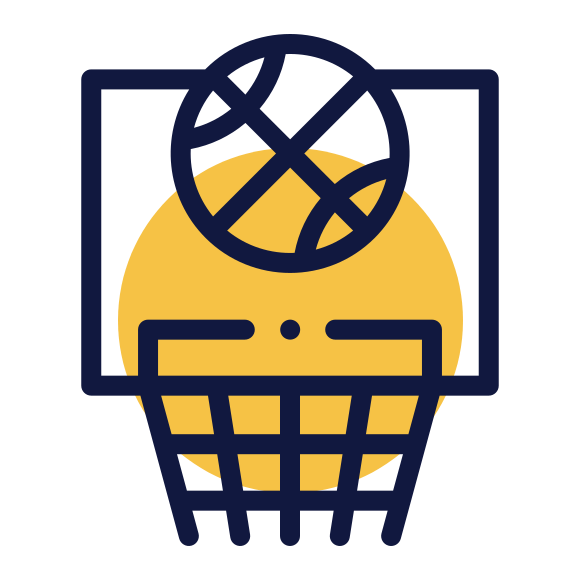 Physical Education ⊕
Physical Education ⊕
All students have a 50 minute lesson of Physical Education per week.
Students in Foundation–Year 2 focus on developing their Fundamental Motor Skills (running, jumping, hopping, skipping, leaping, throwing and catching, and one- and two-handed striking) in fun and engaging games.
Students in Years 3–6 learn Sport Specific Skills; tactics, umpiring and rules of most sports.
PE and Sport
At TVPS, students in Years 3–6 have the opportunity to compete in Swim Trials, Cross Country, Athletics Day and Hooptime Basketball. Students compete in the Doncaster District and progress through Division, Regional, State and even National Championships.
All students in Years 5–6 compete in the Doncaster District Summer and Winter Sports. Students train with their team every Thursday and compete in four round-robin competition days in total.
Students choose a sport from the following list:
Summer Sport
- Cricket
- Basketball
- Softball
- Hotshots Tennis
- Rounders
Winter Sports
- Netball
- AFL
- Soccer
- Tee Ball
- Volleyball
The Sport Programme for Years 5–6 also provides opportunities for competitive Tennis (Term 1) and Girls AFL (Term 2). In Term 4, students participate in sports electives and are offered a selection of activities to take part in, such as basketball, netball, gymnastics, break dancing and Bike Education.
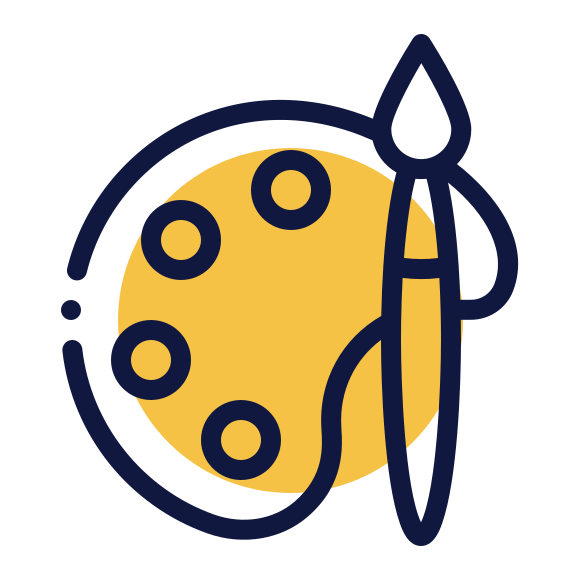 Visual Arts ⊕
Visual Arts ⊕
The Visual Arts program is held in a large and spacious classroom attended by each grade for one hour per week.
The program consists of the various aspects of the curriculum including painting, drawing, collage, printing, modelling, construction, clay and textiles. The school has a modern updated kiln and has a designated kiln room where the students’ clay models can be fired.
Art is frequently related to topics held in the classrooms such as producing a teddy bear to tie into the Foundation theme of “Teddy Bears Picnic”. Literature is also connected to Art with a special emphasis before and during the annual Children’s Book Week.
Visual Arts is valued at school with students’ work displayed about the buildings.
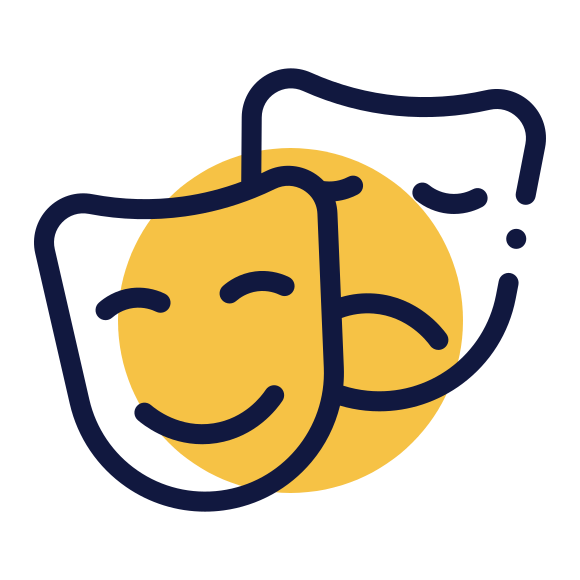 Performing Arts ⊕
Performing Arts ⊕
The Performing Arts program at Templestowe Valley Primary School provides students with a creative, engaging and encouraging environment where they learn, perform and develop skills in all aspects of performance.
Students undertake weekly specialist classes where the focus is on developing their skills and understanding in the three main elements of Performing Arts – Music, Dance and Drama. In these lessons, students are encouraged to take risks by trying new things.
Our bi-annual whole school production offers students a wonderful opportunity to extend their performance skills on a big stage. It encourages teamwork, creativity, and confidence as students work together to bring a full-scale production to life for our school community.
Drama
Music
Dance
Extra-Curricular Classes
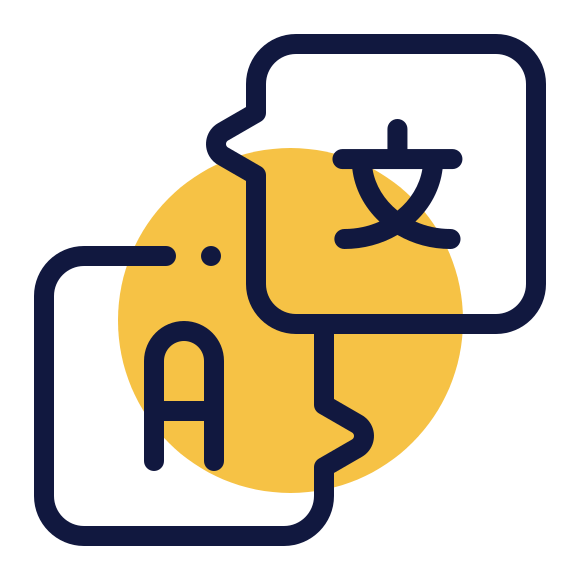 Languages (Mandarin) ⊕
Languages (Mandarin) ⊕
At Templestowe Valley Primary School, our Mandarin program provides students with a dynamic and engaging opportunity to explore the Chinese language and culture. The program is designed in alignment with The Victorian Curriculum: Languages 2.0 (Chinese), supporting students to develop their communication skills, intercultural capabilities, and a deep understanding of diversity and cultural perspectives.
Through learning Mandarin, students build an appreciation of how culture shapes worldviews and gain insights into their own heritage, values, and identity. They are encouraged to be open to different experiences, think critically and creatively, and develop respect for diversity and difference in an increasingly interconnected world.
To make language learning meaningful and enjoyable, students participate in a range of fun and interactive activities, such as:
- Storytelling using gestures and role-play
- Songs and games that reinforce vocabulary and tones
- Art and craft projects inspired by Chinese festivals and traditions
- Cultural celebrations such as the Lunar New Year and Mid-Autumn Festival
- Digital learning activities using Blooket and Canva
- Collaborative tasks, such as setting up breakfast stalls to buy and sell items using Chinese currency
Our program is enriched by the Accelerative Integrated Methodology (AIM), a highly effective approach that combines gestural techniques, storytelling, and active participation. AIM supports students to see, hear, speak, and ‘feel’ the language simultaneously, making the learning process both fun and memorable.
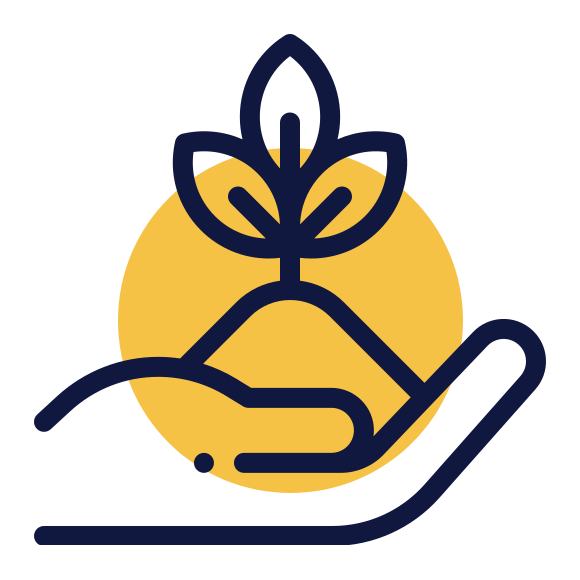 Sustainability ⊕
Sustainability ⊕
At Templestowe Valley Primary School (TVPS), we are proud of our vibrant community of staff, students, parents and friends who share a strong commitment to environmental education and sustainable living. Together, we’re helping our students become confident, responsible and environmentally aware leaders of the future.
Sustainability is woven into daily life at TVPS — through our classroom learning, whole-school initiatives and special events.
Our integrated curriculum explores:
- Biodiversity
- Water
- Energy
- Waste
These areas help students understand their impact on the world and how they can make a difference.
Families play an active role in our program, from helping in the garden and kitchen to assisting with maintenance projects. Our weekly Gardening Club is a favourite among students, who love getting their hands dirty alongside teachers and parent volunteers as they grow fruits, vegetables and flowers to share with our community.
Garden to Plate
Through our Garden to Plate program, students experience every stage of the growing process — from planting seeds and caring for seedlings, to maintaining garden beds, harvesting fresh produce, and using it to create delicious, healthy meals in our kitchen. At times, students also help sell or share produce with our wider community, learning valuable lessons about sustainability, teamwork and enterprise.
Our Environment
Our beautiful school grounds are an outdoor classroom in themselves. The Sustainability Area includes a thriving fruit and olive orchard, raised garden beds and a friendly chook house. Our Asian Garden connects closely with our LOTE program, providing a hands-on way for students to explore culture and nature together. Throughout the school you’ll also find rainwater tanks, native plants and plenty of local wildlife — from lorikeets to cockatoos and king parrots.
Environmental Leadership
Students at TVPS take the lead when it comes to sustainability. Our Environmental Captains — from Foundation through to Year 6 — encourage their peers to make sustainable choices and care for our school environment. They work closely with our Sustainability Coordinator to run initiatives such as Nude Food Tuesdays, maintain our gardens and plan new projects to improve our school’s environmental footprint.
Nude Food Tuesdays
Nude Food simply means food that comes without disposable packaging — no plastic, foil or zip-lock bags. Instead, students bring healthy, unpackaged options in reusable containers.
Every Tuesday, TVPS goes completely Nude Food! Each week, the class with the fewest wrappers wins the Golden Lunchbox at assembly — a fun way to celebrate our shared commitment to waste-free lunches.
Quick Links
Enrol at TVPS
Find everything you need to join our community.
How We Teach
Explore our engaging and evidence-based learning programs.
Life at TVPS
Discover the activities, values and culture that make us unique.
Parents & Community
Get involved through our Parents & Friends and community partnerships.
© Templestowe Valley Primary School

